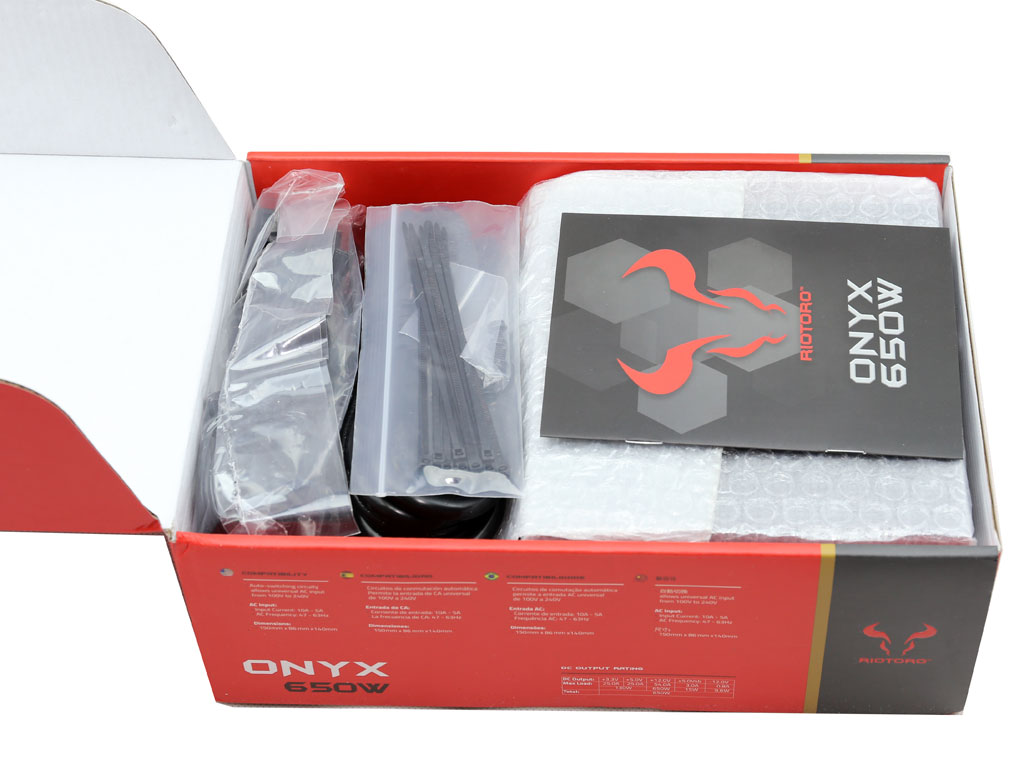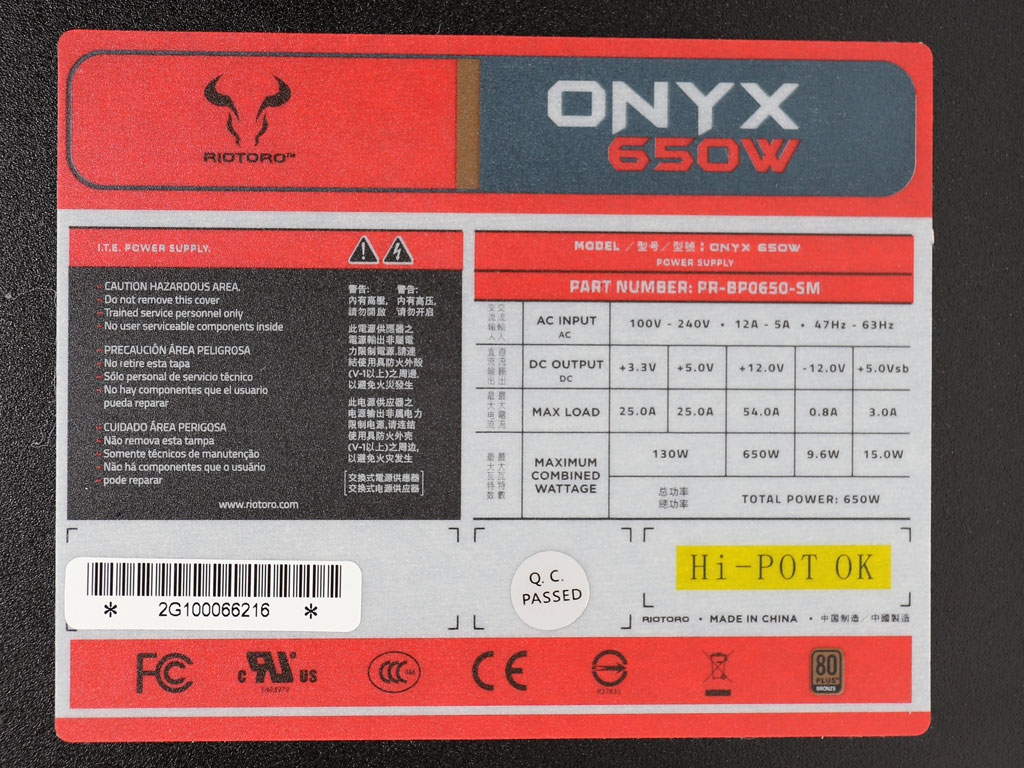Riotoro Onyx 650W PSU Review
Why you can trust Tom's Hardware
Packaging, Contents, Exterior & Cabling
Packaging
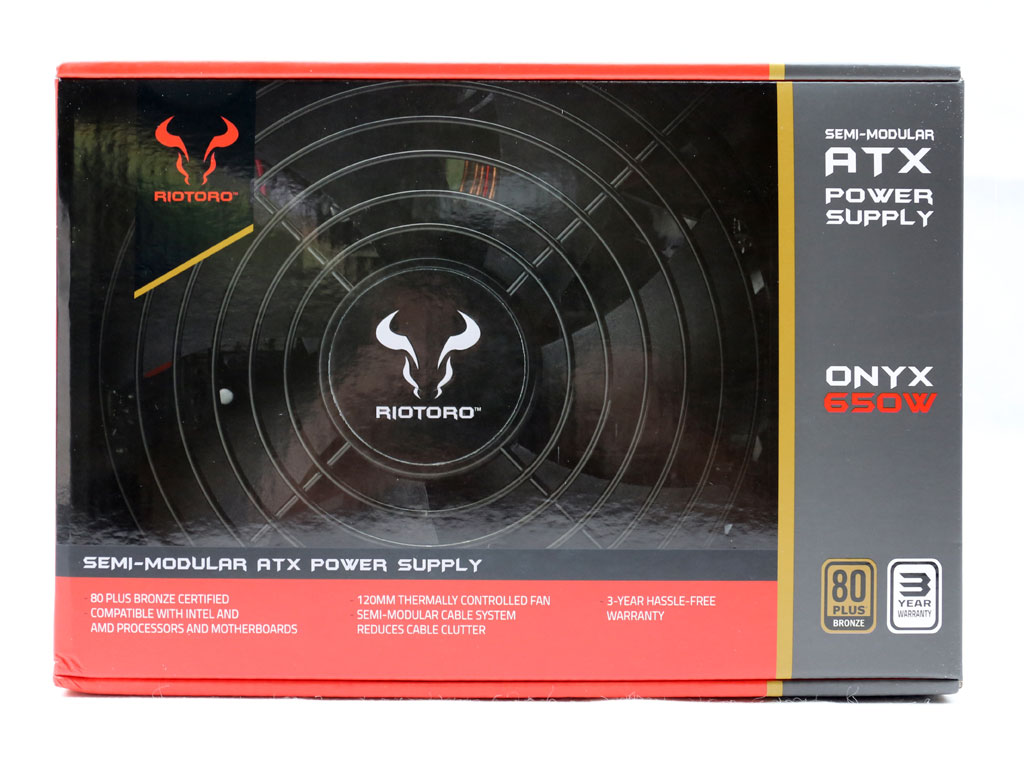

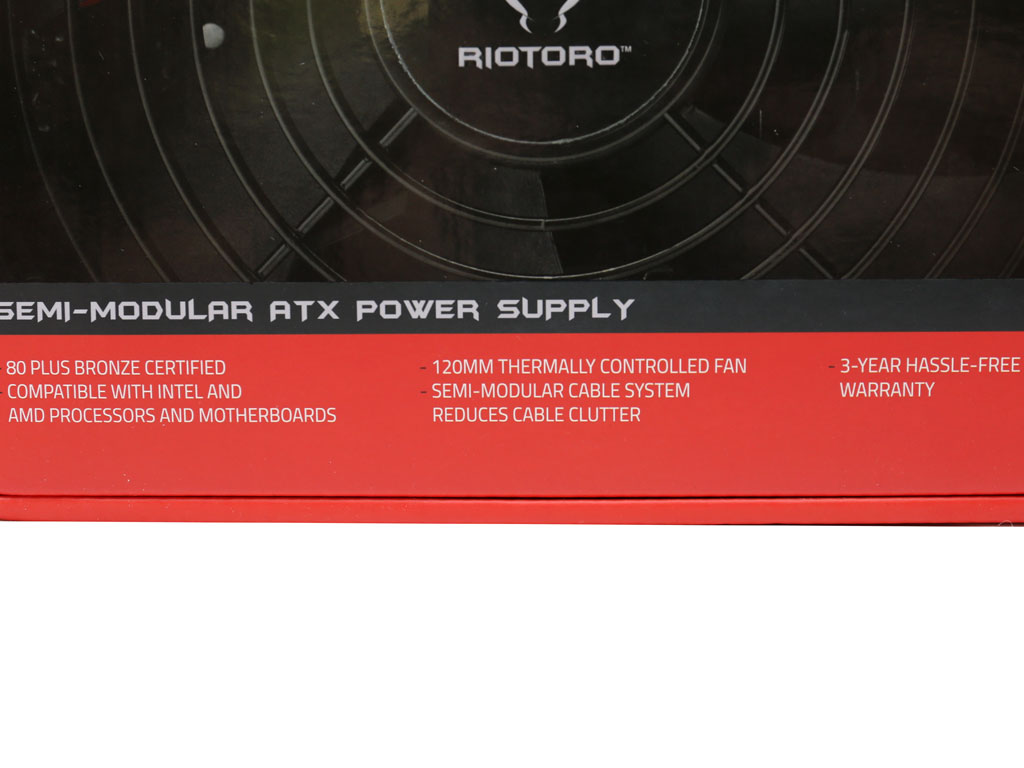
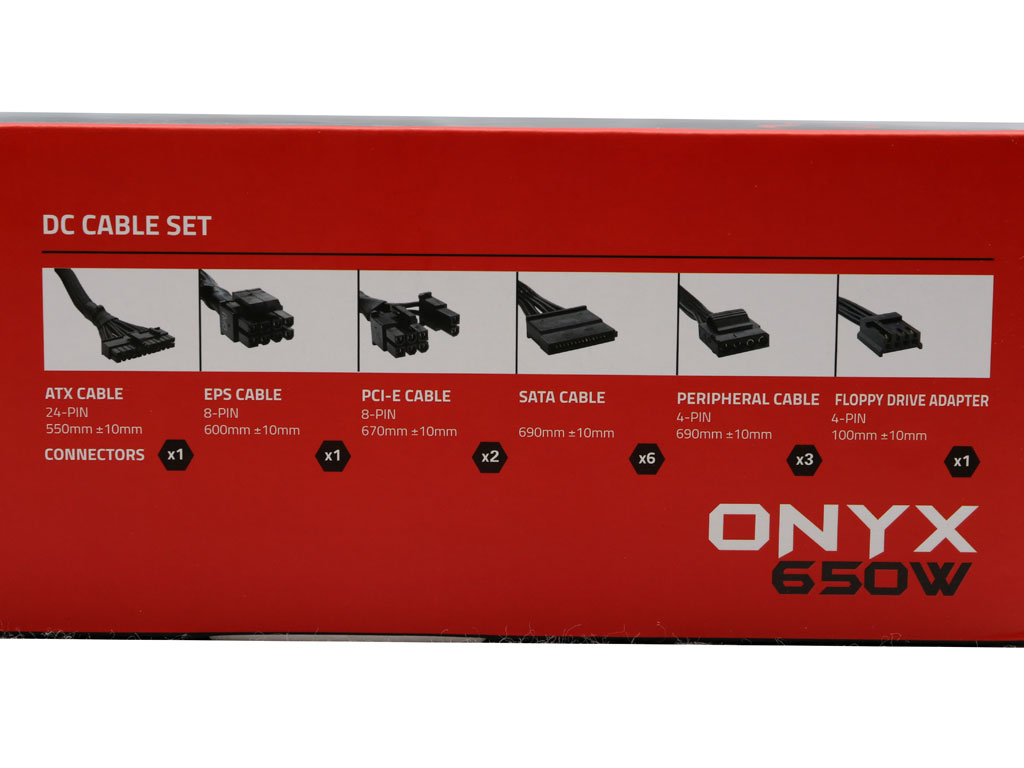
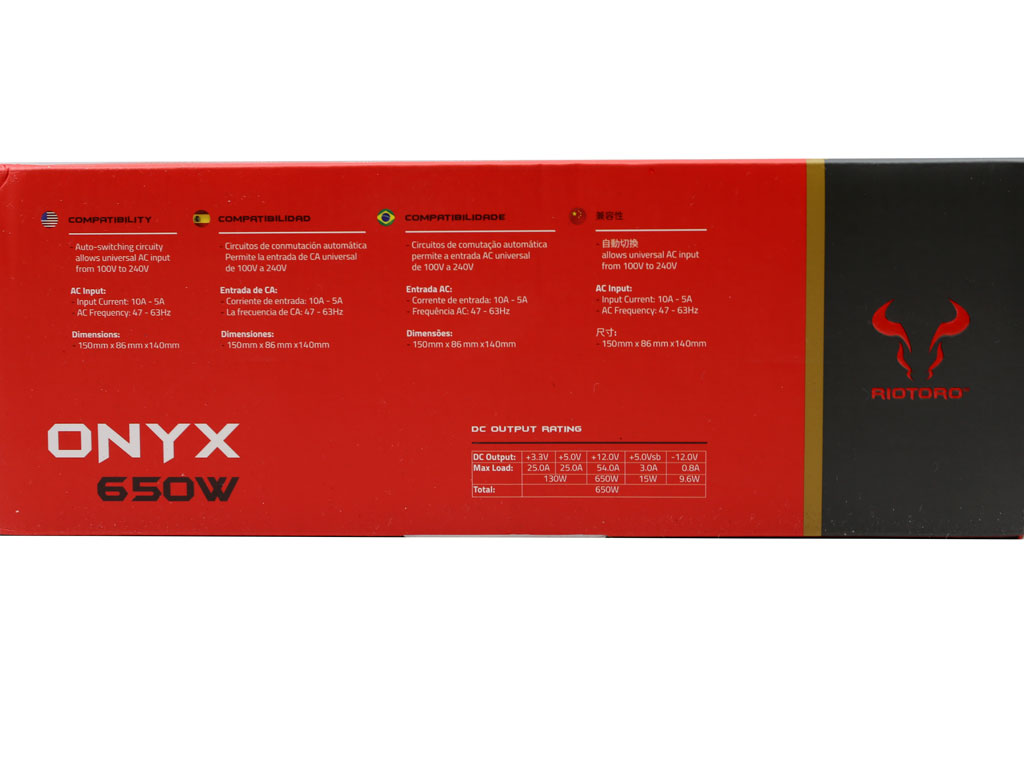
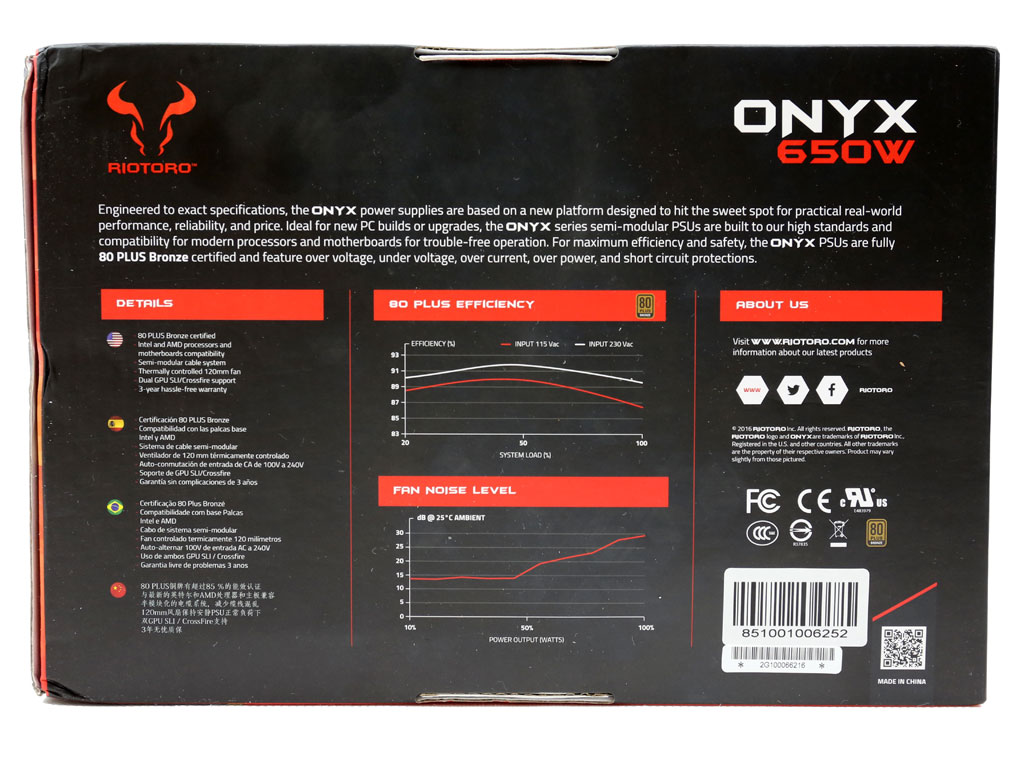
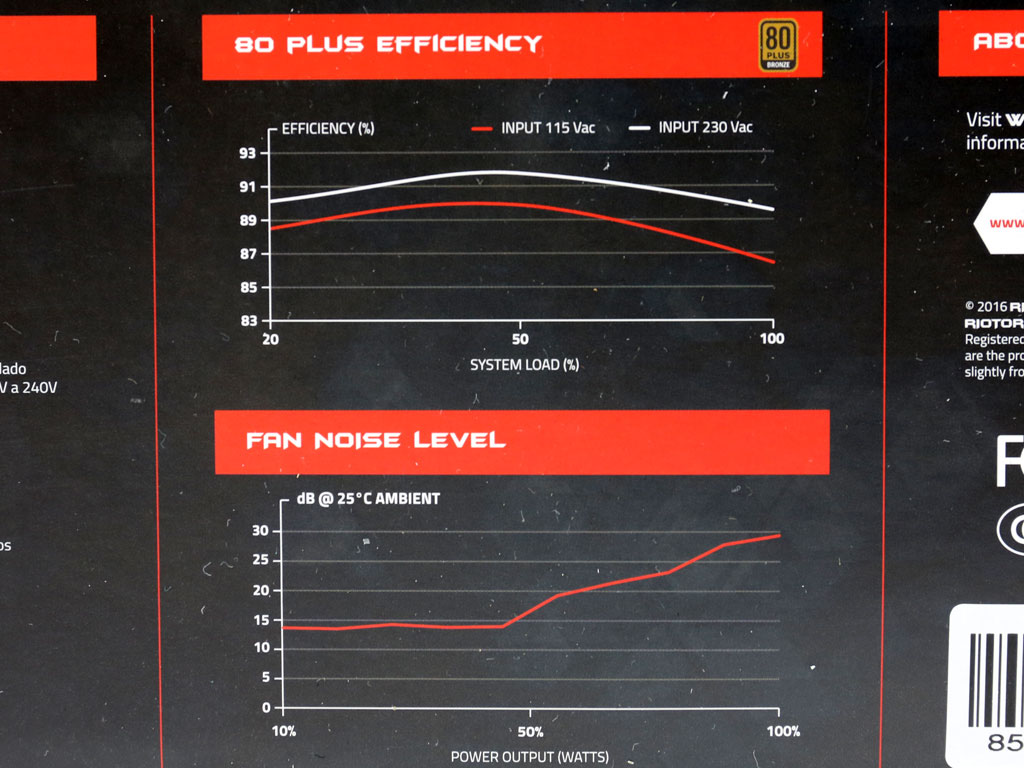
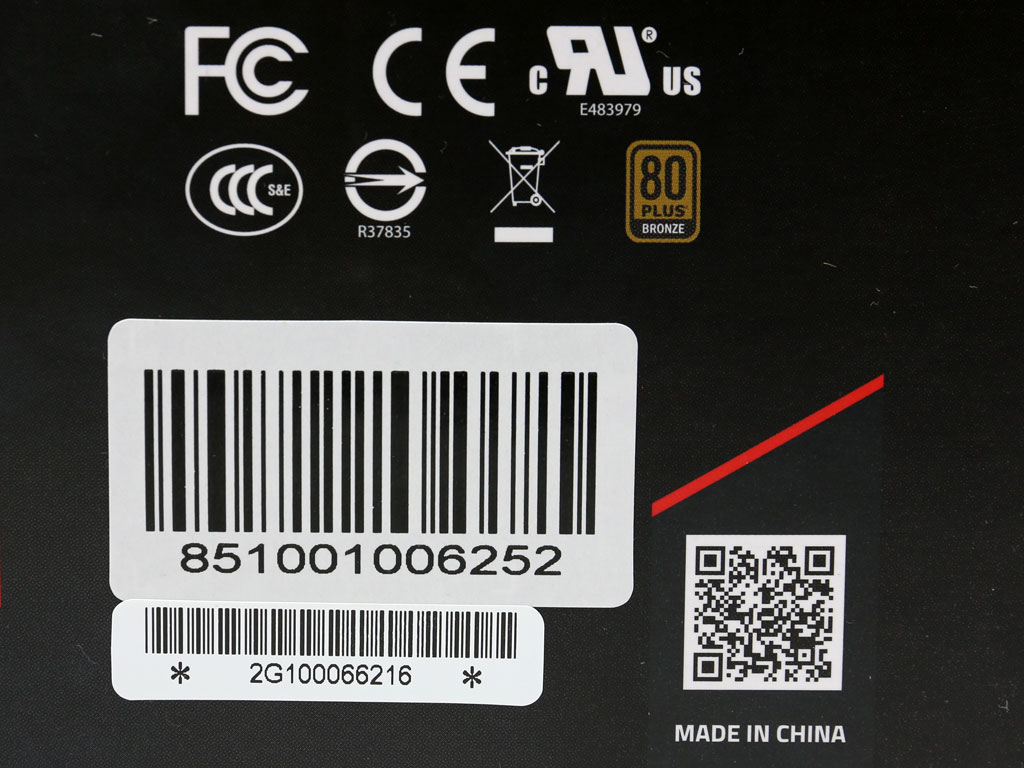
On the front of the box is a photograph of the PSU's fan, with Riotoro's badge right in the middle. The word "semi-modular" is used a couple of times to indicate that this PSU uses a mix of native and modular cables. In the bottom-right corner, two badges illustrate 80 PLUS Bronze efficiency and a three-year warranty.
Down on the bottom, there's a list of available connectors, complete with corresponding cable lengths. The power specifications table is on the opposite side. Finally, around back, you're greeted by the efficiency and fan noise curves (at 25°C ambient). A small paragraph describes the Onyx family's major features, noting that these PSUs are based on a new platform. This gets us excited about the next page, where we uncover more details about Great Wall's design.
Contents
The PSU is protected mostly by bubble-wrap inside the box. We would like to see it surrounded by packing foam instead.
As usual, the user's manual is on top of the PSU in an effort to make you notice (and read) it. Sadly, most of the enthusiasts we know don't bother.
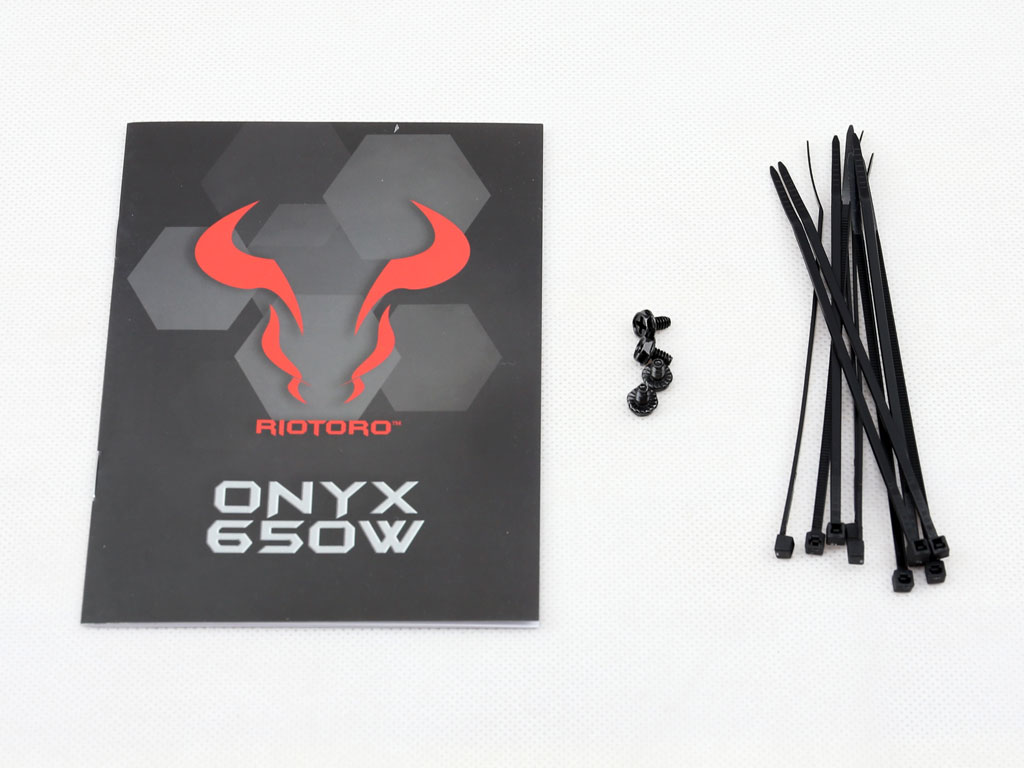
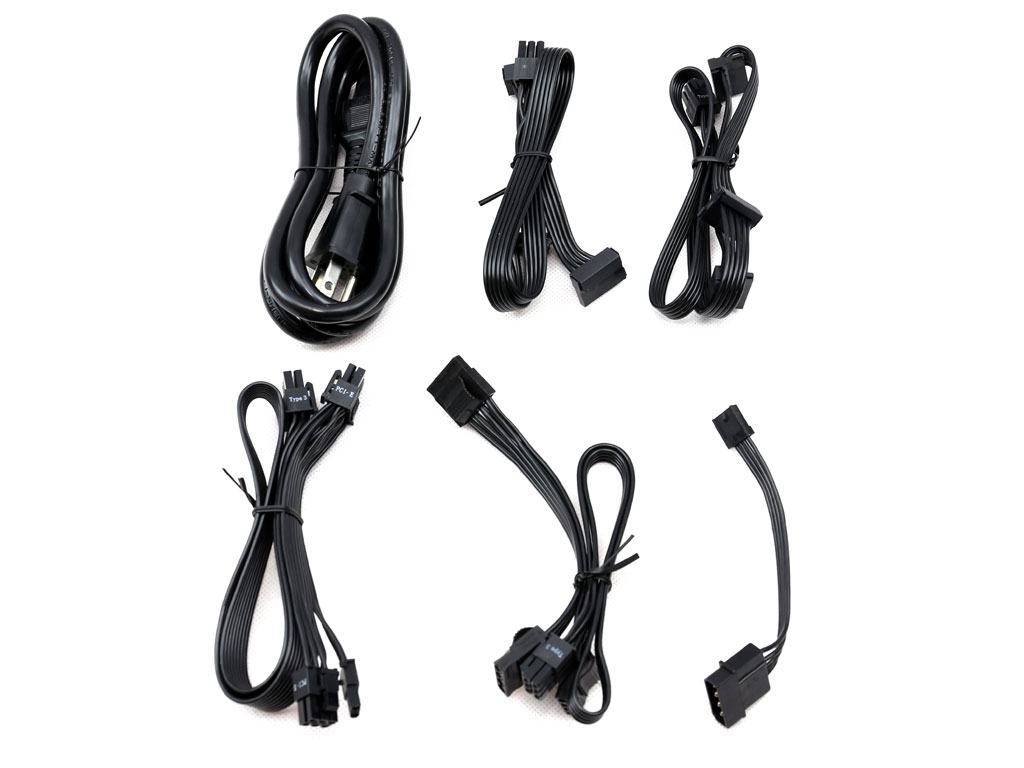
Besides the aforementioned user's manual, Riotoro's bundle includes fixing bolts, several zip ties, and the necessary cables.
Exterior
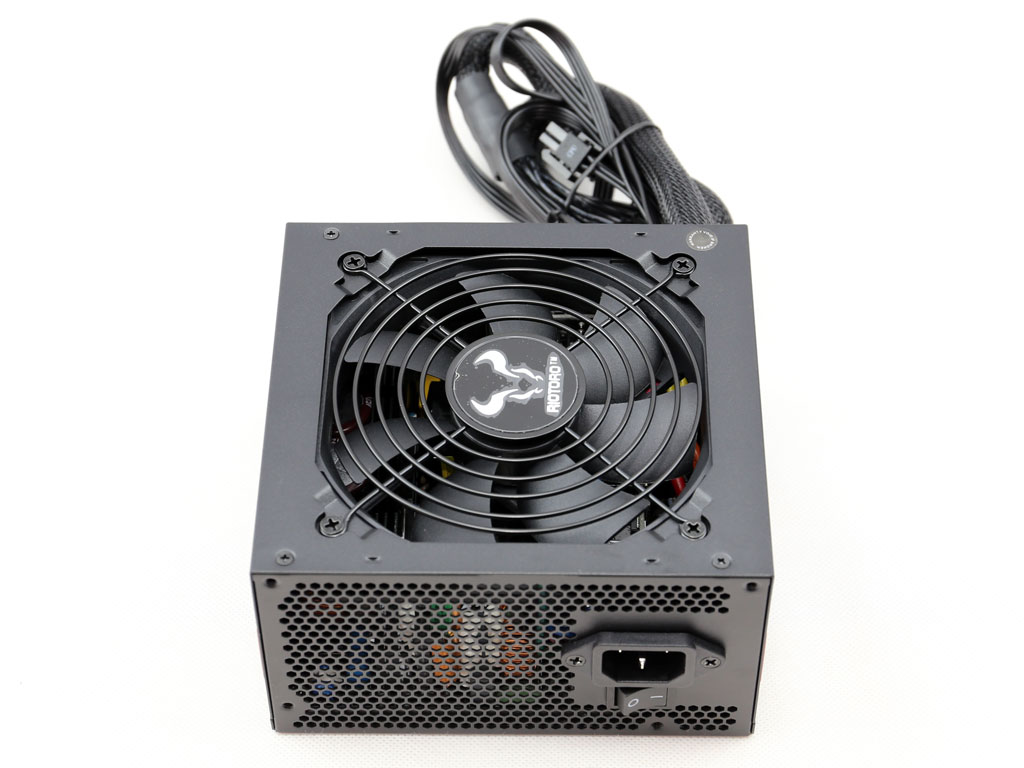
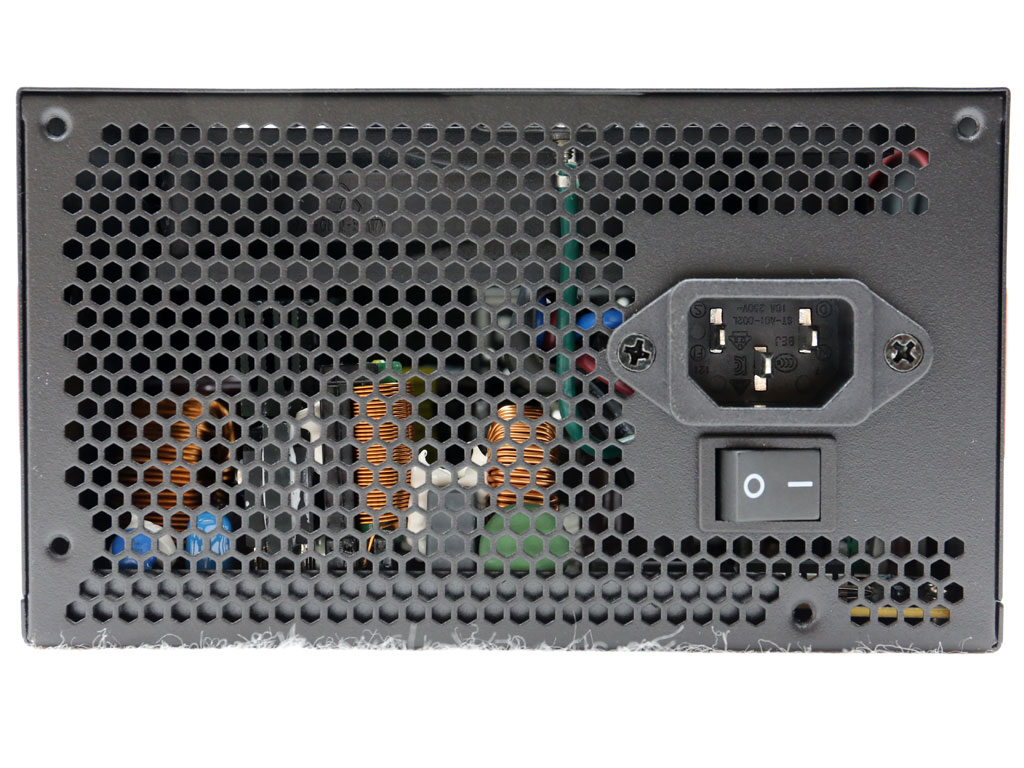
There is nothing extraordinary about this PSU's external looks. In its price range, we aren't looking for anything innovative in that regard.
A power switch up front is installed below the AC receptacle.
Get Tom's Hardware's best news and in-depth reviews, straight to your inbox.
An informational label on the bottom is quite large.
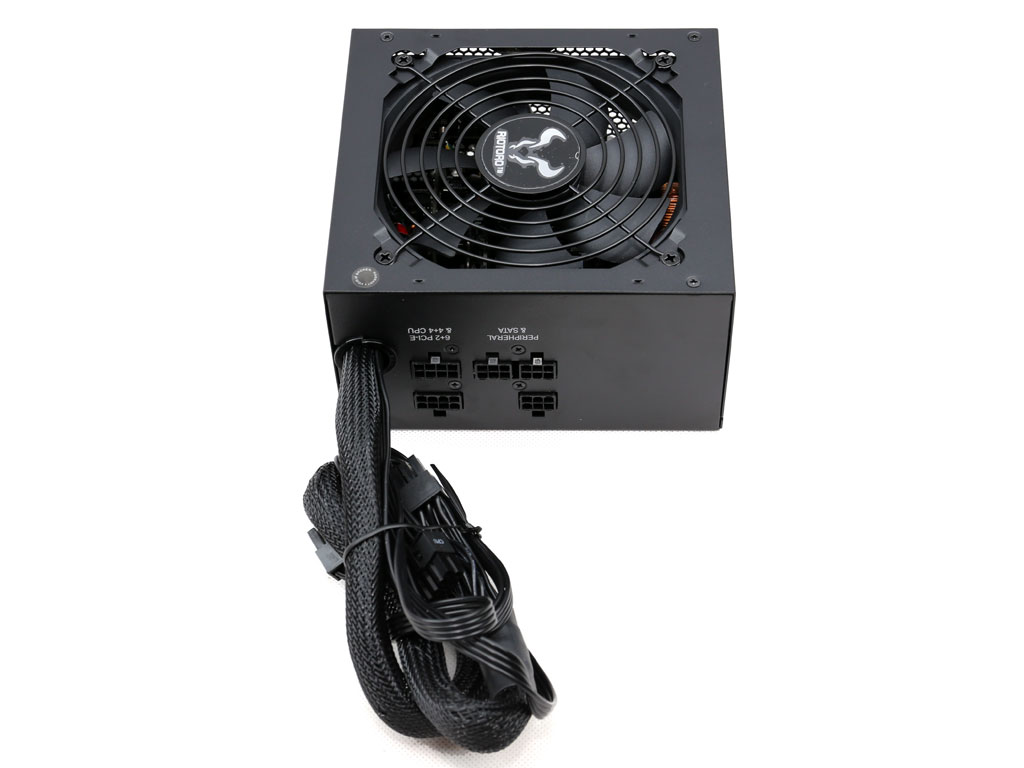
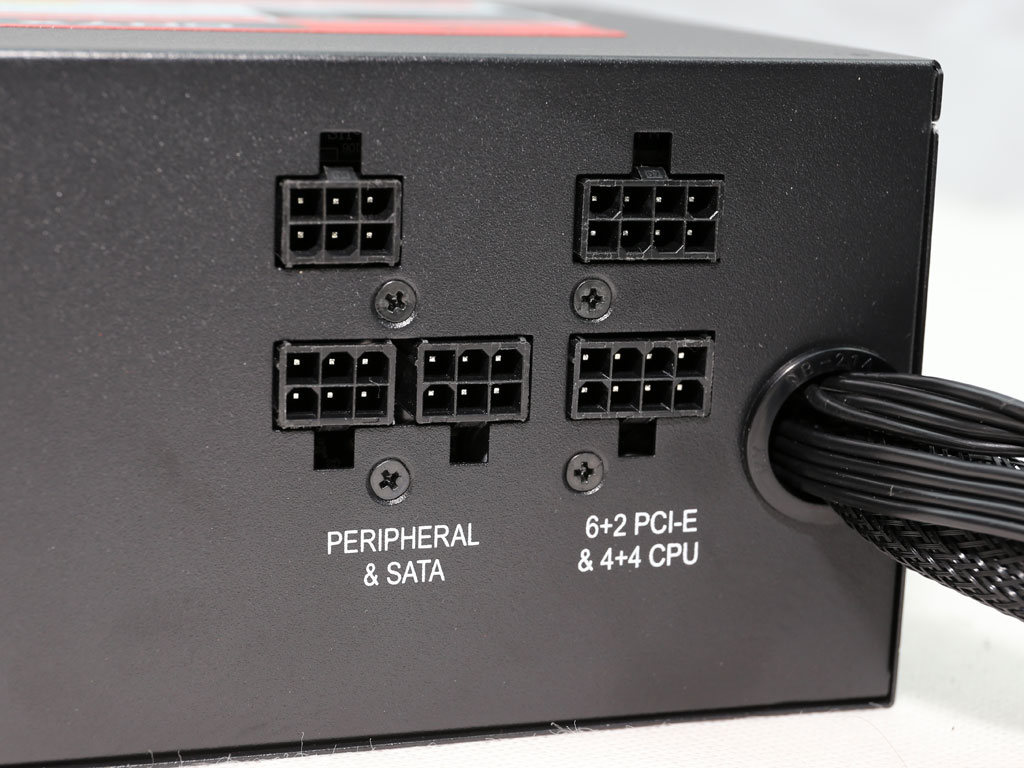
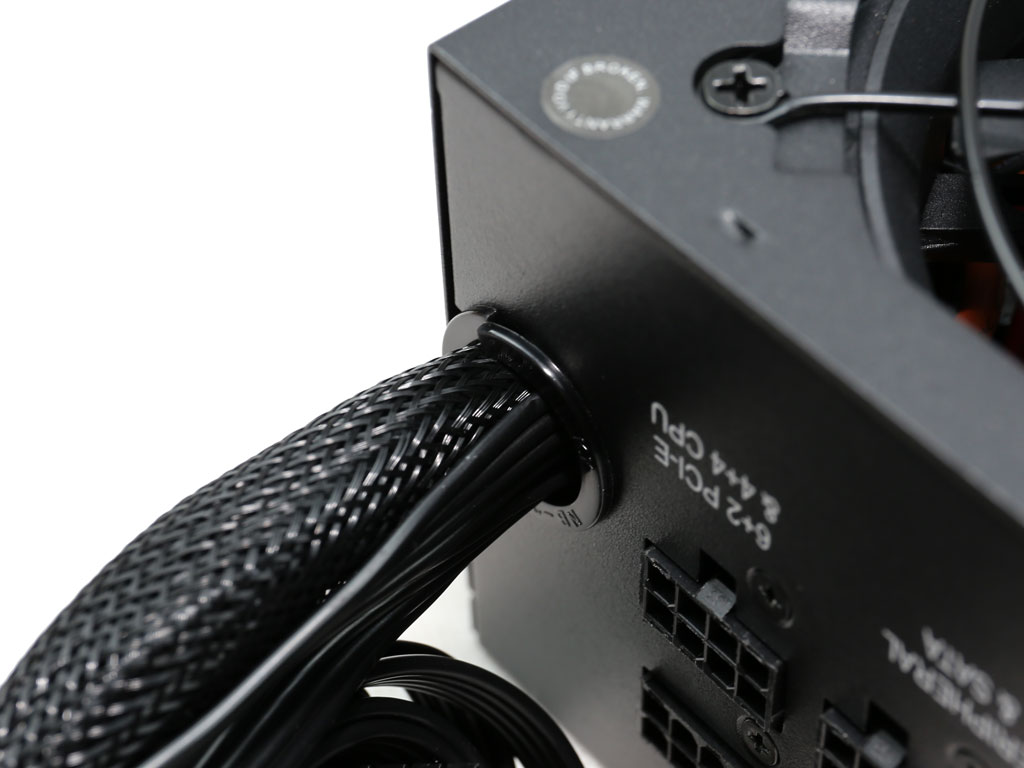
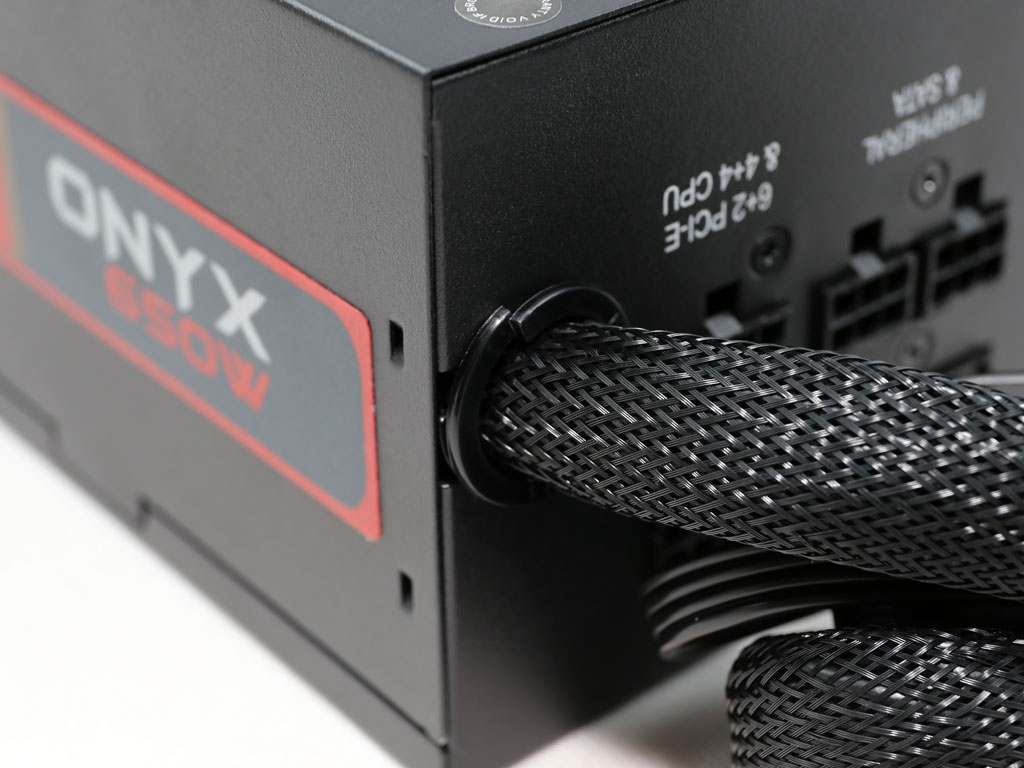
Around back, the modular panel is small, hosting only five sockets. One of them is for the PCIe cable, which hosts two corresponding connectors. Another identical socket goes unused, though we assume you can connect an EPS or second PCIe cable. Neither is provided, though, so you'll have to figure out how to source one if you need it.
A grommet around the cable exit hole protects the native cables from the chassis' edges.
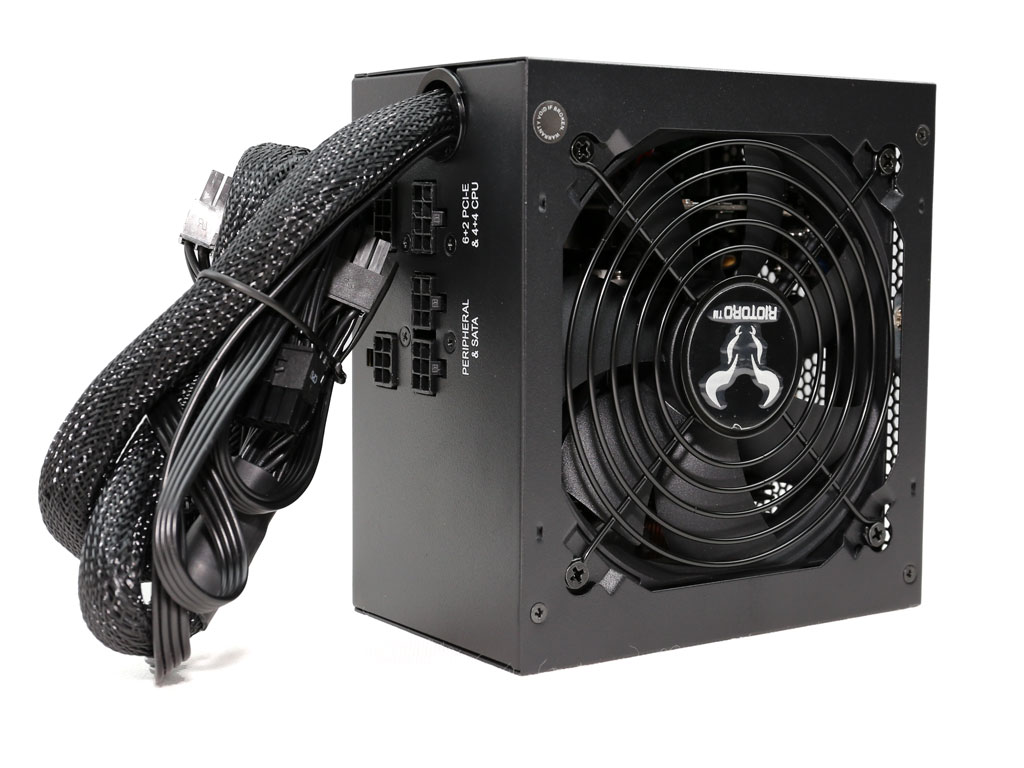
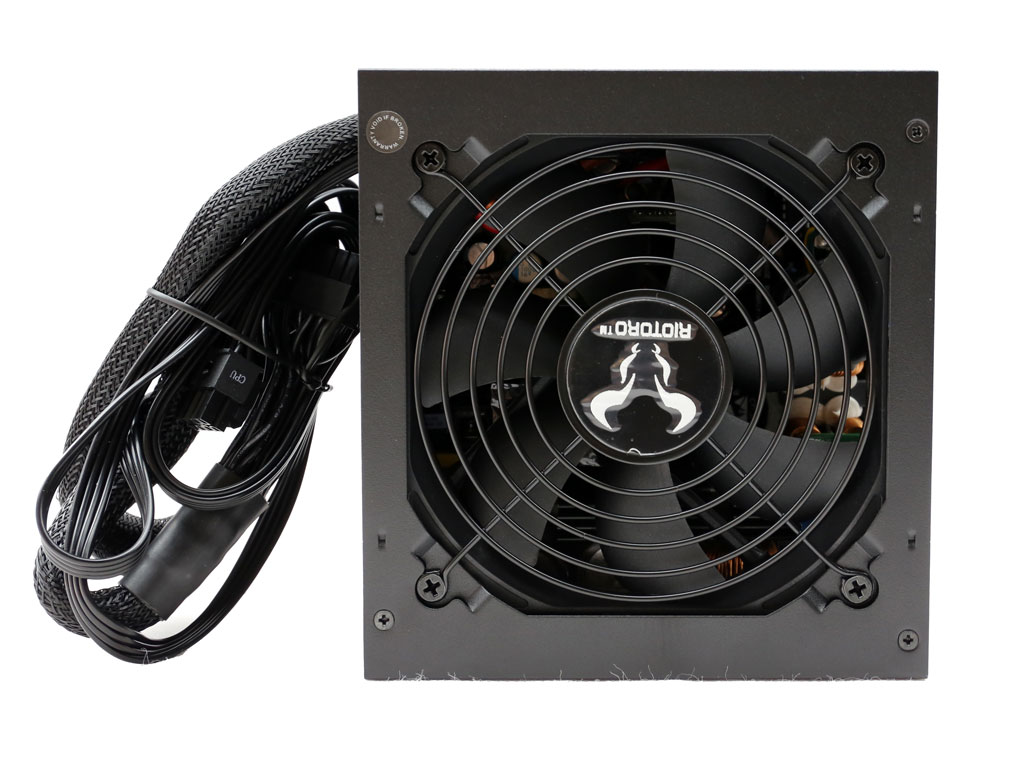
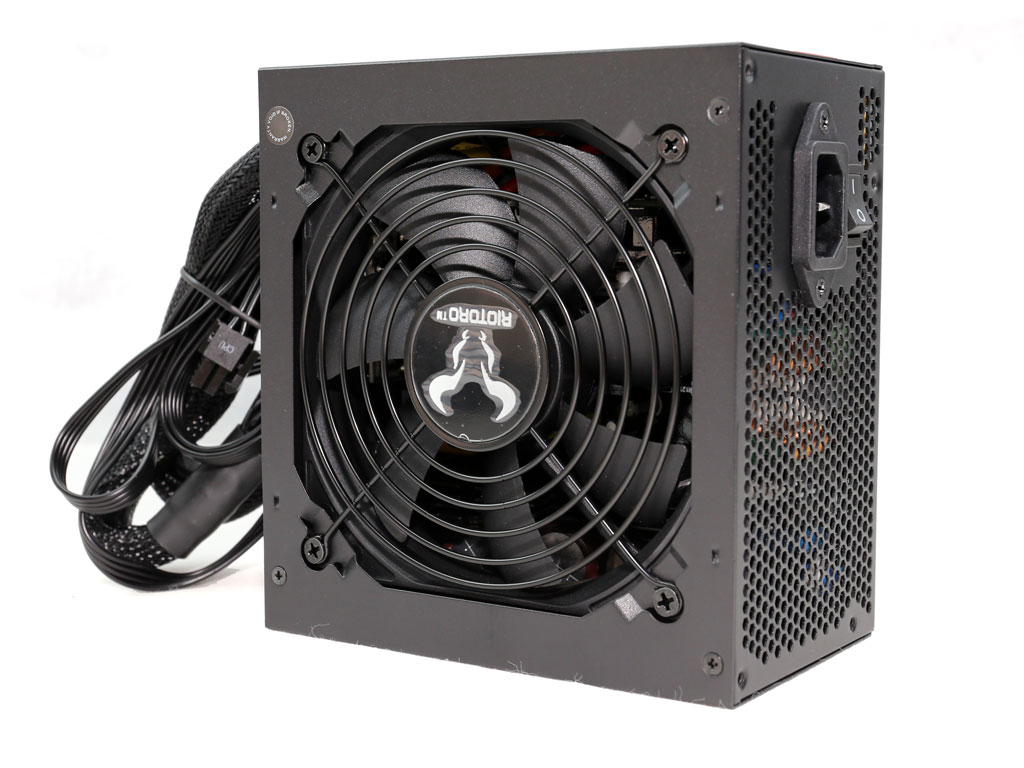
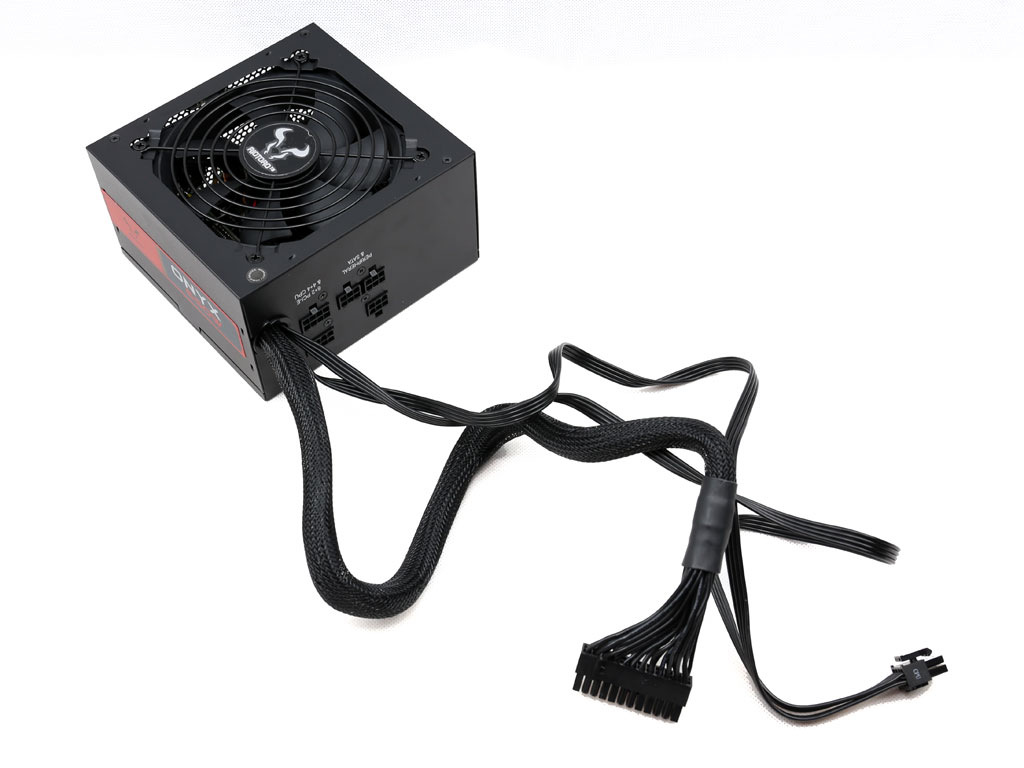
This is a compact PSU, given its 14cm depth. So, it should fit easily in any ATX-compliant case.
Cabling
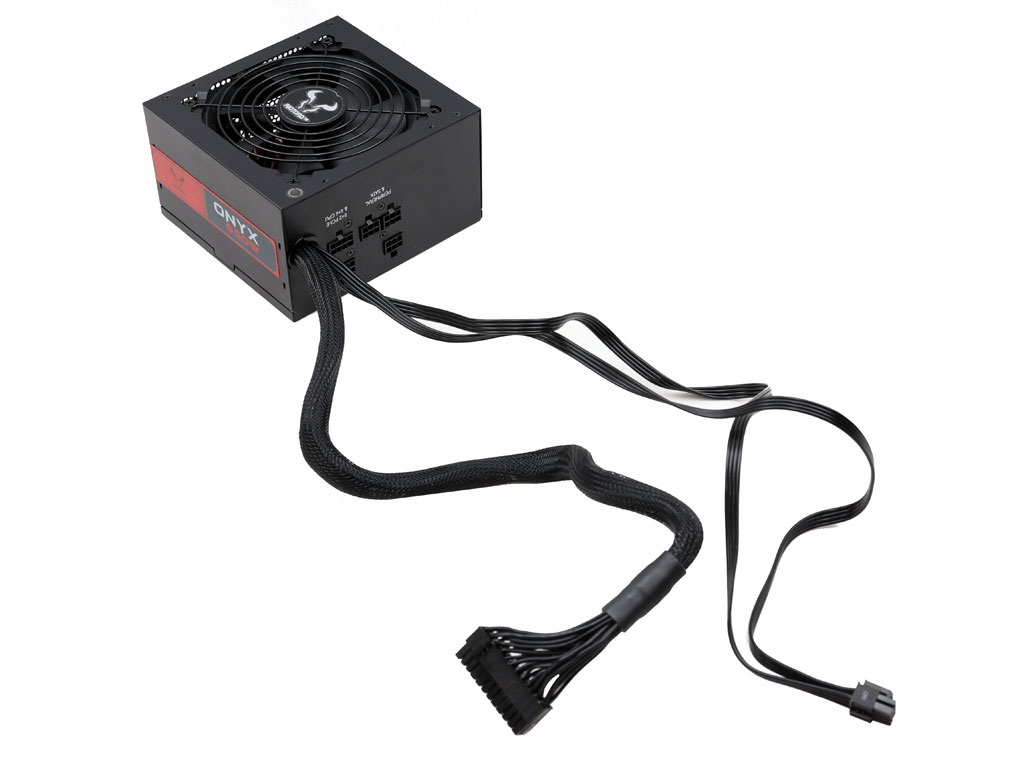
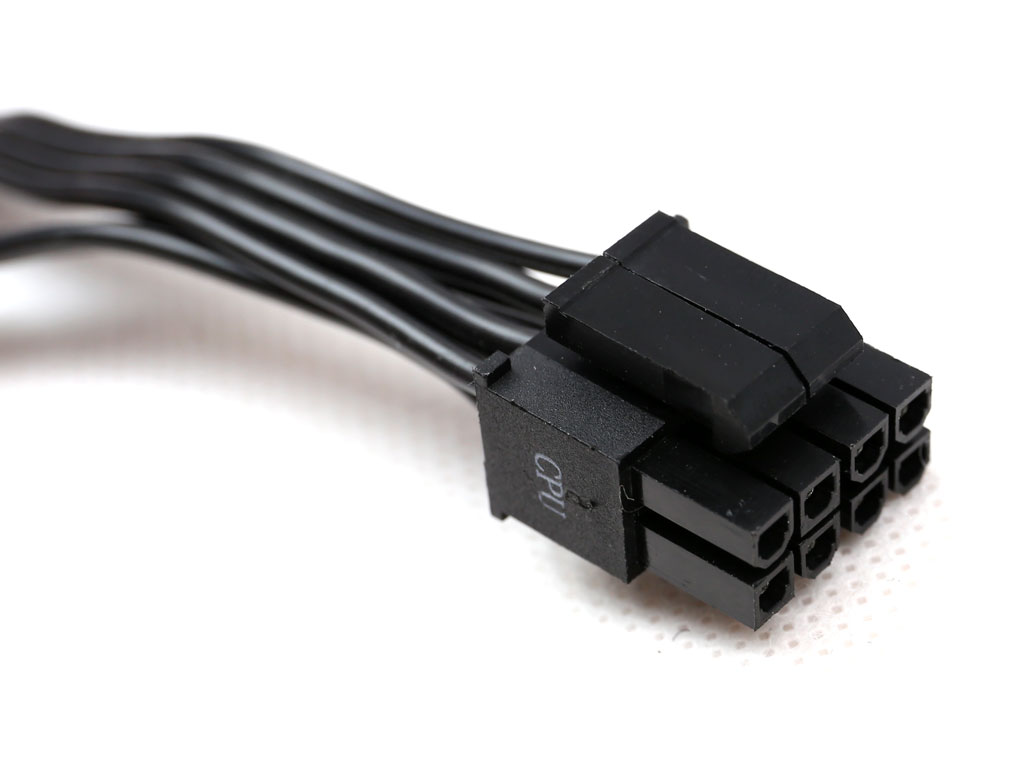
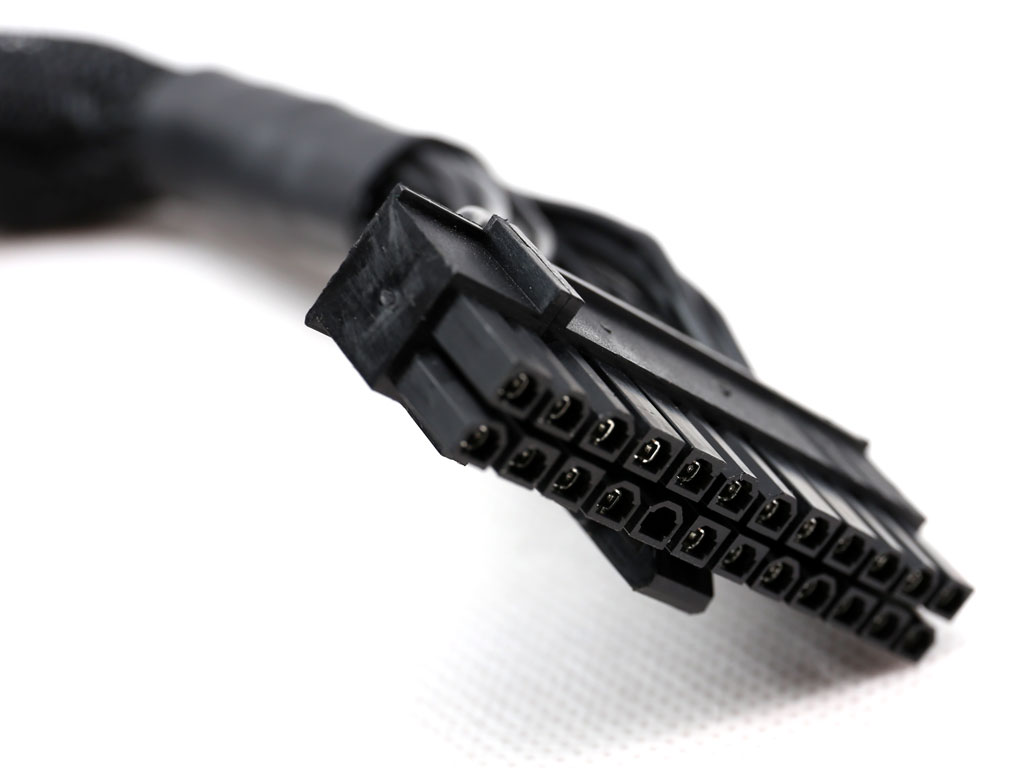
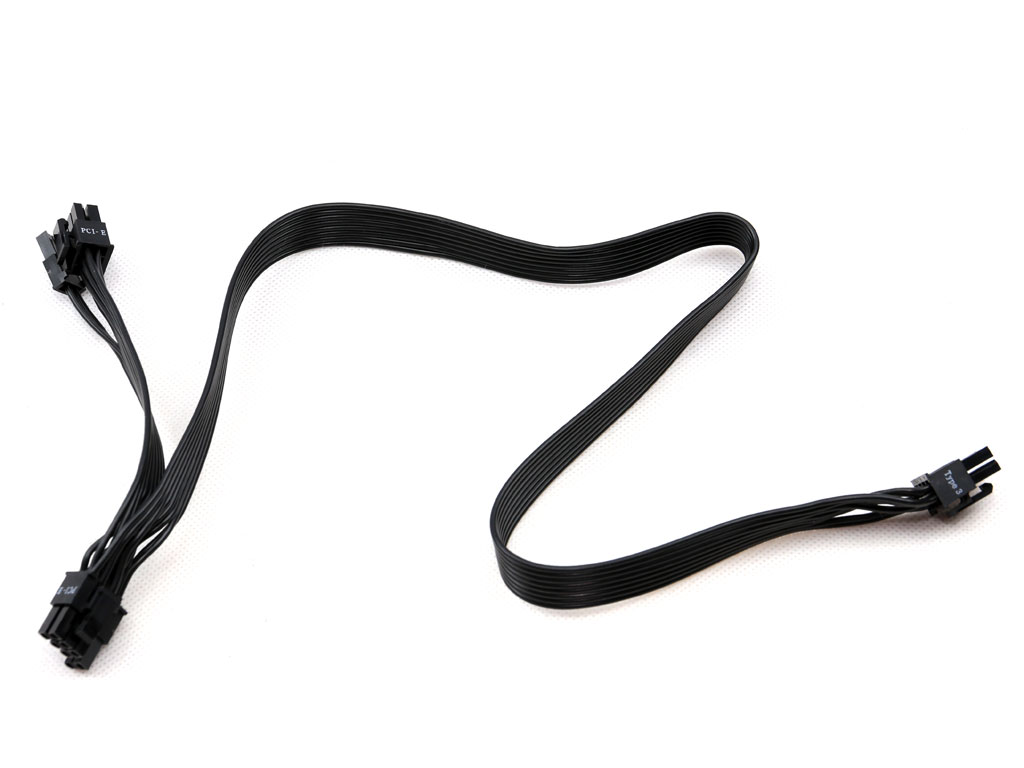
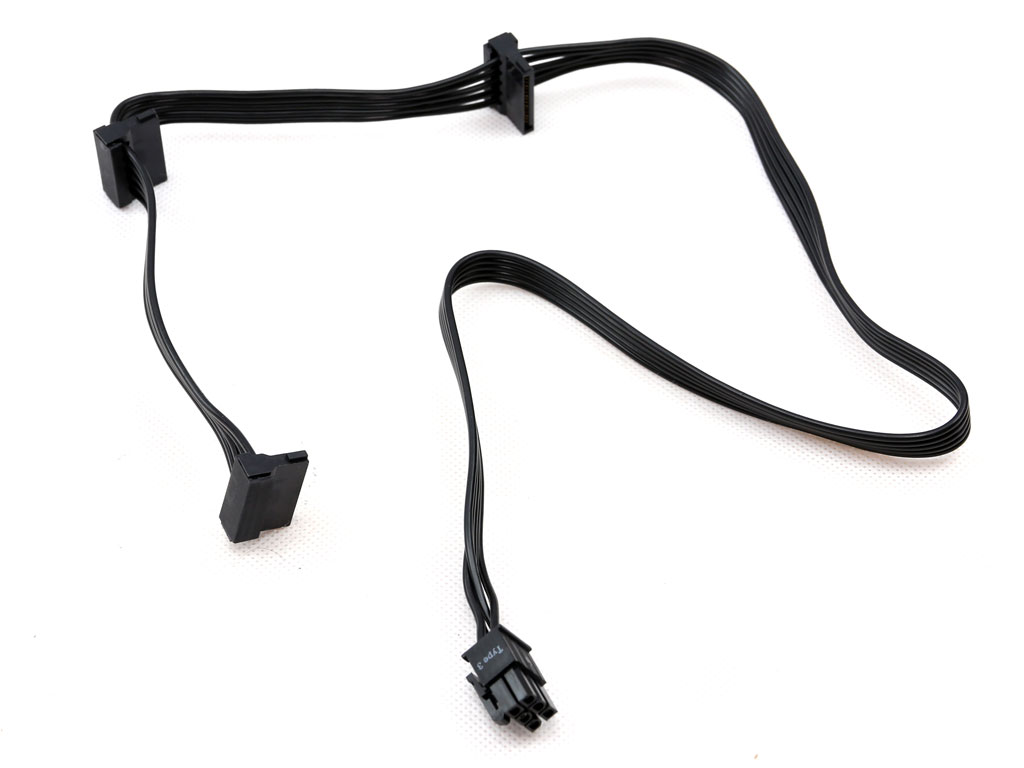
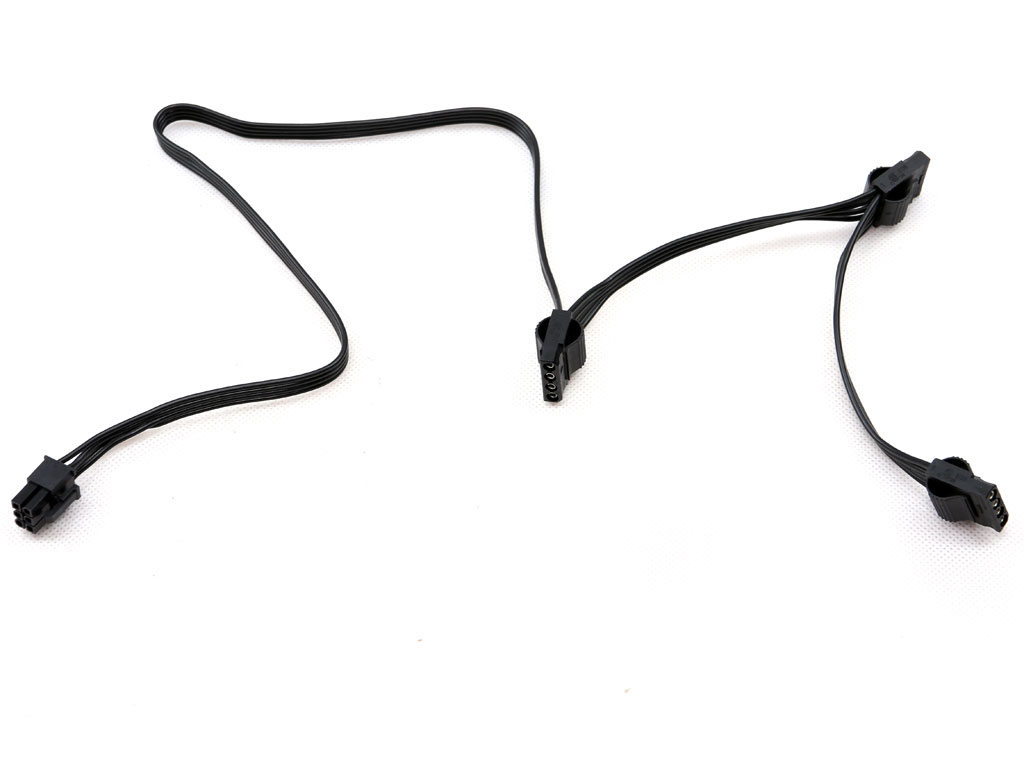
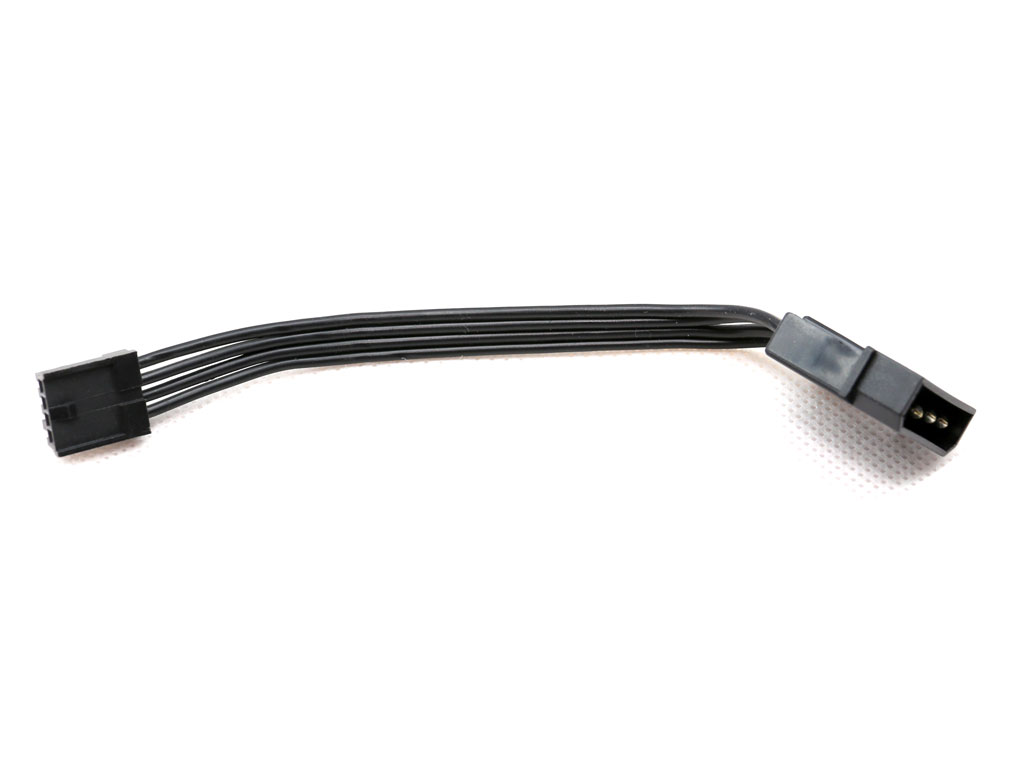
Both native cables use stealth (darkened) wires. Only the main ATX cable is round, though; the rest are flat. It is nice to see ribbon cables in affordable PSUS like this. Besides facilitating easier cable management, they also block less airflow inside your case compared to the round ones we're used to seeing.
MORE: Best Power Supplies
MORE: How We Test Power Supplies
MORE: All Power Supply Content
Current page: Packaging, Contents, Exterior & Cabling
Prev Page Features & Specifications Next Page Teardown & Component Analysis
Aris Mpitziopoulos is a contributing editor at Tom's Hardware, covering PSUs.
-
turkey3_scratch I don't think it's so much the aggressiveness of the fan that contributes to the noise rather than the fact that it's just a noisy fan. There are many other fans that could be spinning at equal RPM and be much quieter while providing the same amount of cooling.Reply
Then again, the noise should not be too severe of a deal in a computer case with other fans (such as case fans at 100% always) contributing more significantly to the net noise.
Edit: Nevermind, dope move by me. I didn't realize the y axis started at 1400RPM, yep, that fan RPM is very high indeed. -
Ne0Wolf7 Reply20135612 said:I don't think it's so much the aggressiveness of the fan that contributes to the noise rather than the fact that it's just a noisy fan. There are many other fans that could be spinning at equal RPM and be much quieter while providing the same amount of cooling.
Then again, the noise should not be too severe of a deal in a computer case with other fans (such as case fans at 100% always) contributing more significantly to the net noise.
I agree, especially when you're like me and have six of them because you were obsessed with filling all of the fan slots on your first build (lol). When the noise finally got to me, I got creative with my intake/ output configuration, and set my PSU to ECO mode (which is no fan). The PSU started roasting, so I rebooted with the fan going and noticed no noise difference whatsoever and the PSU was much cooler (then again, my case fans are sleeve bearing, but still). -
turkey3_scratch Reply20135670 said:20135612 said:I don't think it's so much the aggressiveness of the fan that contributes to the noise rather than the fact that it's just a noisy fan. There are many other fans that could be spinning at equal RPM and be much quieter while providing the same amount of cooling.
Then again, the noise should not be too severe of a deal in a computer case with other fans (such as case fans at 100% always) contributing more significantly to the net noise.
I agree, especially when you're like me and have six of them because you were obsessed with filling all of the fan slots on your first build (lol). When the noise finally got to me, I got creative with my intake/ output configuration, and set my PSU to ECO mode (which is no fan). The PSU started roasting, so I rebooted with the fan going and noticed no noise difference whatsoever and the PSU was much cooler (then again, my case fans are sleeve bearing, but still).
I have a build with like 6 fans that gets noisy because the motherboard only supports so many fans, so I have to plug them into the PSU. But I also have a second build that is dead silent with some Noctuas, and that's the type of build I would want a very silent or at least semi-passive PSU in. -
Ne0Wolf7 Reply20135678 said:20135670 said:20135612 said:I don't think it's so much the aggressiveness of the fan that contributes to the noise rather than the fact that it's just a noisy fan. There are many other fans that could be spinning at equal RPM and be much quieter while providing the same amount of cooling.
Then again, the noise should not be too severe of a deal in a computer case with other fans (such as case fans at 100% always) contributing more significantly to the net noise.
I agree, especially when you're like me and have six of them because you were obsessed with filling all of the fan slots on your first build (lol). When the noise finally got to me, I got creative with my intake/ output configuration, and set my PSU to ECO mode (which is no fan). The PSU started roasting, so I rebooted with the fan going and noticed no noise difference whatsoever and the PSU was much cooler (then again, my case fans are sleeve bearing, but still).
I have a build with like 6 fans that gets noisy because the motherboard only supports so many fans, so I have to plug them into the PSU. But I also have a second build that is dead silent with some Noctuas, and that's the type of build I would want a very silent or at least semi-passive PSU in.
My ATX motherboard only has two fan headers, not sure who was in charge there, haha, but I bought two three way splitters so I could control the speeds. My side panel has two fan slots, and I can only use one of them because the CPU cooler, so I just have this lovely outlet for sound... Its really a blessing too beacsue I have two GPUs so one can never be tarved for air too much but still. A new case and fans are in my future somewhere. -
takeshi7 Can you review the Rosewill Hive 750W? I got one on sale for $60 recently and there aren't any recent reviews for it, and not from any that are as in depth as Tom's Hardware.Reply -
takeshi7 Reply
It's still relevant though. Especially because it's cheaper, more powerful, and has the same 80 Plus rating as this Riotoro unit.20143641 said:@takeshi7, there aren't new reviews for it because it isn't a new PSU. -
turkey3_scratch Reply20144799 said:
It's still relevant though. Especially because it's cheaper, more powerful, and has the same 80 Plus rating as this Riotoro unit.20143641 said:@takeshi7, there aren't new reviews for it because it isn't a new PSU.
"More powerful" can be interpreted many ways. What do you mean by that? -
takeshi7 Reply
I mean 750W > 650W.20144830 said:20144799 said:
It's still relevant though. Especially because it's cheaper, more powerful, and has the same 80 Plus rating as this Riotoro unit.20143641 said:@takeshi7, there aren't new reviews for it because it isn't a new PSU.
"More powerful" can be interpreted many ways. What do you mean by that? -
turkey3_scratch Reply20144901 said:
I mean 750W > 650W.20144830 said:20144799 said:
It's still relevant though. Especially because it's cheaper, more powerful, and has the same 80 Plus rating as this Riotoro unit.20143641 said:@takeshi7, there aren't new reviews for it because it isn't a new PSU.
"More powerful" can be interpreted many ways. What do you mean by that?
Eh, doesn't really mean much of anything if you ask me. It's just what they decided to rate it at. I don't think we'll ever see a Rosewill Hive review. They're older and newer units get reviewed instead.
A high quality lower wattage power supply can be more powerful than a lesser quality higher wattage power supply.
